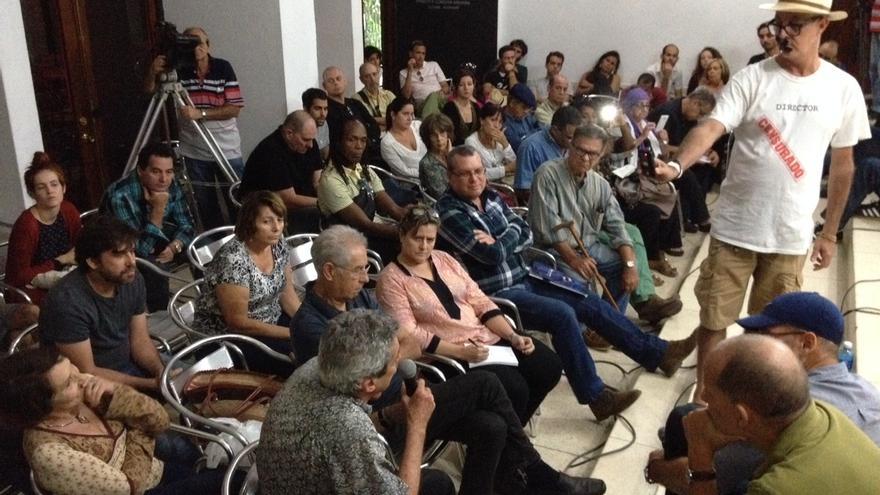
![]() 14ymedio, Havana, 12 February 2021 — The Cuban Institute of Cinematographic Art and Industry (Icaic) published a note this Thursday in which it specifies that audiovisual production is not an activity for the self-employed , although it appears on the list of jobs not allowed for the private sector officially announced this week.
14ymedio, Havana, 12 February 2021 — The Cuban Institute of Cinematographic Art and Industry (Icaic) published a note this Thursday in which it specifies that audiovisual production is not an activity for the self-employed , although it appears on the list of jobs not allowed for the private sector officially announced this week.
According to the agency, this activity is governed by Decree-Law 373 in which independent production that does not comply with the Government’s provisions was explicitly prohibited. The audiovisual creators who do not work for the state, says Icaic, are not self-employed but artists.
The Decree-Law, which develops the activity, does recognize three activities that, without being artistic, are essential for the development of an audiovisual project. These are the occupations of operator and/or lessor of equipment for artistic production, casting agent, and artistic production assistant. In these cases, all three can be performed by the self-employed.
Icaic clarifies that the fact of considering cultural creation as an artistic and non-self-employed activity was the result of a “broad debate” with professionals in the sector and it was thus agreed to emphasize the creative nature of the profession.
In June 2019, the Government gave the green light to Decree-Law 373, which regulates the work of audiovisual creators not linked to the state sector. At that time, the professionals were very satisfied with the fact that they had managed to wrest this legislation from the Government, for which they spent several years fighting, but the disappointment set in as soon as they read its content.
To become an audiovisual and cinematographic creator, the applicant must be registered in a registry that depends directly on the Cuban Institute of Cinematographic Art and Industries (Icaic) and the Cuban Institute of Radio and Television (ICRT). Both institutions make up the admission committee responsible for approving and evaluating applications.
The text makes explicit that the candidate must demonstrate having the conditions, abilities and skills required by the committee, which, de facto, implies passing through an ideological filter of the arbitrary State and that prevents any critic of the regime from having access to develop their work in an independent way.
____________
COLLABORATE WITH OUR WORK: The 14ymedio team is committed to practicing serious journalism that reflects Cuba’s reality in all its depth. Thank you for joining us on this long journey. We invite you to continue supporting us by becoming a member of 14ymedio now. Together we can continue transforming journalism in Cuba.
